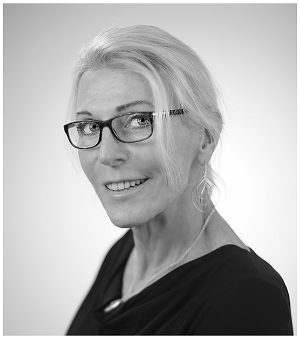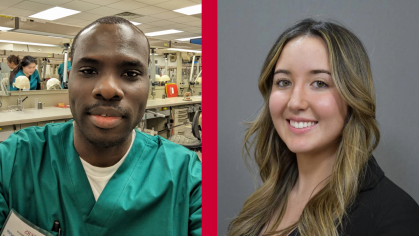Advocate for Better Transgender Healthcare Speaks at RSDM
As a teen growing up in Long Island in the 1960s, Ken Koch was the youngest starting quarterback at his high school. Otherwise, he didn’t seem much different than other boys in town.
But his self-image, which he kept hidden from public view, was another story. He identified as a girl. “From the age of 5, I was aware of the trans thing,’’ said Koch. “Something was not quite right.’’
The feeling persisted for decades as Koch earned a DMD, a Certificate in Endodontics, and became the director of the Postdoctoral Program at the Harvard School of Dental Medicine. Finally, in middle-age, Ken became Anne after embarking on the medical process of transitioning from male to female.
Last month, Dr. Koch spoke to RSDM students and faculty, along with colleagues from the School of Social Work, Robert Wood Johnson Medical School, the School of Health Professions and others as part of an interdisciplinary talk on healthcare for transgender patients.
She shared her personal story and advocated strongly for improved care and protections for transgender patients.
Dr. Ken Koch before his gender transition
In recent years, especially as the public transformation of Caitlyn Jenner has drawn attention to transsexual and transgender issues, there has been a rise in transgender patients. But there is also an alarming shortage of skilled, ethical, and informed care for the transgender community, said Koch.
Now that transgender medical procedures, including sex reassignment surgery, are increasingly covered by insurance providers, doctors without proper skills and training are offering transgender care, according to Koch.
“What has changed is this influx of cash,’’ she added.
As a result, not only are surgeries and other procedures being botched, inflicting irreversible harm, but there is often a lack of understanding of the trans community and the medical, social and psychological needs of patients.
Koch listed the many struggles faced by transgender patients: social ostracism, rejection from friends and family, isolation, increased unemployment, physical abuse and poor medical and health outcomes.
She proposed that caregivers for trans patients be required to undergo at least six-months of training and that more funding be allocated for evidenced-based research on the medical needs of trans patients.
But more day-to-day measures, such as enacting a protocol that is sensitive to trans issues and identities, is a good way to begin, she said. This could include gender neutral restrooms and asking patients how they want to be addressed in terms of gender pronouns, rather than making assumptions.
“Let’s start by creating a welcoming environment,’’ said Koch.




